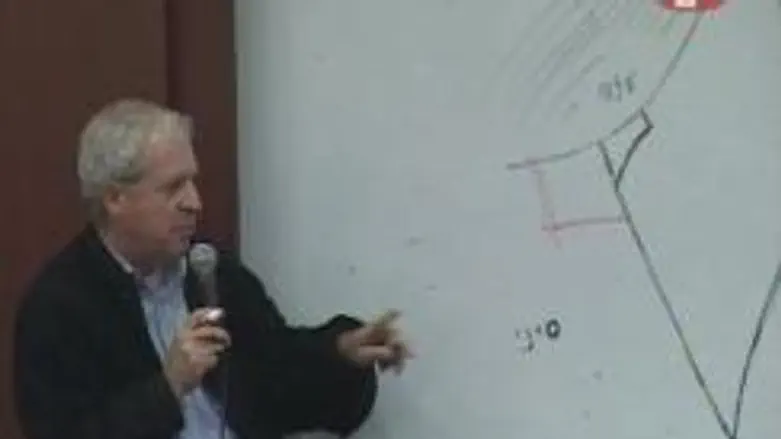
Maj. Gen. (res.) Giora Eiland presented two alternatives to the two-state solution Monday, at a conference hosted by Bar-Ilan University's Begin-Sadat (BESA) Center for Strategic Studies. Eiland's presentation was based on his new study "Regional Alternatives to the Two-State Solution.”
According to Eiland, Israel's former National Security Adviser, the first alternative is for Israel to relinquish most of the territory it currently controls in Judea and Samaria for the establishment of a Palestinian state in confederation with the Hashemite Kingdom of Jordan. The second is a multinational exchange of territory between Israel, Jordan, Egypt and the Palestinians on the basis of mutual interest.
Gaza 'must be enlarged'
In the territorial exchange proposed by Eiland, Egypt would transfer 720 square km of land to the Palestinians, enabling them to build a seaport, airport and city. Egypt would be compensated with an equal amount of land taken from the Negev desert and a tunnel to run from Egypt to Jordan at the southern tip of Israel which would connect Egypt with the Arab countries to the east. The 720 square km to be transferred by Egypt are equal to 12 percent of Judea and Samaria, which would be the percentage of Judea and Samaria territory to remain in Israel's hands.
Eiland argued that the enlargement of Gaza is necessary in order for it to be a viable entity, particularly since demographically the population there is expected to double in the next 20 years. This alternative could enable the region to become an international trade center, he said.
Maj. Gen. (res.) Danny Rothschild, of the Inter-Disciplinary Center's Institute for Policy and Strategy, expressed his reservations regarding Eiland's proposal. "We can suggest solutions to others which will best serve their interests, but from my experience, this doesn't often succeed. Furthermore, we don't have the time needed in order to implement a plan of this kind, as we are witnessing a rapid acceleration of Islamic fundamentalism. We must focus on our interests and the faster we can solve the conflict the better off we'll be," said Rothschild.
Egypt: 'no, thank you'
Responding to the proposal put forward at the BESA conference by Eiland, a representative of the Egyptian embassy in Israel said it is not possible to expect Egypt to cede territory under its sovereignty in order to reach a solution and that “the Palestinian problem should not be turned into an Egyptian problem.”
Eiland voiced skepticism regarding the parameters for negotiations as defined recently by US Secretary of State Hillary Clinton – i.e., a solution based on the 1967 borders, with land exchanges. The two-state paradigm is not achievable because it is "not attractive enough" to the Palestinians or the Israelis, he said.
"Why won't the Israelis and Palestinians sit together and sign an agreement?" he asked. "Here is the paradox: both sides are not really interested in a solution along the lines of the Clinton parameters. Both sides don’t think it's a good solution and both sides do almost whatever they can in order not to reach a point in which they have to make a commitment to accept the solution and implement it. The maximum that any government in Israel can offer the Palestinians and survive politically is much less than the minimum that any possible Palestinian leadership can accept and survive politically," he said.